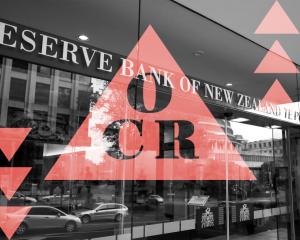The fact some Dunedin households are feeling the pinch was reflected in more careful spending during the summer holidays.
A report, released by Enterprise Dunedin yesterday, showed the most affected categories were home and recreational retailing, which was down 19.5% compared with the previous year, and clothing, footwear and department stores, down 19%.
As household discretionary incomes continued to tighten, due to the effects of rising mortgage rates and high inflation, a cautious attitude had taken hold of consumers, the report said.
Retail spending in Dunedin climbed during December in the lead-in to Christmas and the festive spending increase was more constrained than in previous years. It was 4.6% below its December 2021 level.
Yesterday, Bike House sales manager Paul Gough said while biking was becoming a lot more popular, sales of bikes were down when compared with the pre-Covid period. However, sales of e-bikes were "on the rise".
At the other end of the scale, visitor-related expenditure, such as hospitality and accommodation retailing, had risen by 13.7% between December 2021 and 2022.
That increase, particularly in the inner city, could be attributed to the ongoing recovery of international tourism to Dunedin, the report said.
According to data estimates from hourly monitoring of mobile phones by Data Ventures, average daily visitor numbers in December were 26% higher than December 2021. It was up 12% from the December 2020 level.
In December last year the proportion of international visitors continued to rise, reaching 28% of all visitors to Dunedin.
The proportion of international visitors in Dunedin was the highest seen since January 2020 before the pandemic.
The increase in international visitors was largely attributed to the ongoing recovery of the cruise ship industry.
In December, 23 cruise ships entered Port Otago which was more than double November’s numbers.
According to Statistics New Zealand’s payroll data, the number of filled jobs in Dunedin increased by 1.4% in December compared with a year ago, which was a rise of more than 800 filled jobs.
People at the end of their careers saw the largest increase in filled job growth.
The number of jobs held by over 65-year-olds had increased by 8.5% from the previous year’s level.
Growth was seen in the 15 to 24-year-old and 35 to 44-year-old age brackets, up 2.2% and 3.3% respectively.
Filled jobs in the 45 to 54-year-old age range fell slightly from December 2021.
Public administration and safety (10.9%) and professional, scientific, and technical services (7.6%) are the sectors that continued to drive this growth. Agriculture, forestry, and fishing remained below last year’s levels by 13.8%.
Average annual wage earnings in Dunedin rose by 5.8% above the December 2021 level to reach more than $65,000 per annum.
"This was slightly slower growth than what has been seen in the previous five months," the report said.
"Statistics New Zealand estimates inflation was at 7.2% pa in December, therefore increases in Dunedin’s wages are still not meeting the rising cost of living."
Ministry of Social Development data indicates the number of people receiving a Jobseeker Support benefit in Dunedin in December was 17% below the December 2021 level.
In December, 3654 people received a Jobseeker Support benefit in Dunedin compared with 4392 in December 2021.












